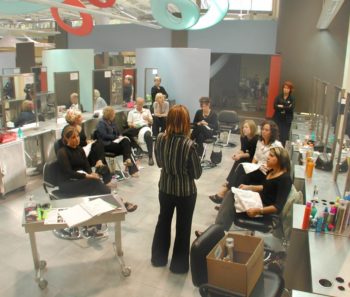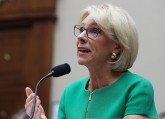Gainful Employment Rule
Updates for Beauty Schools and Students
For the latest information regarding gainful employment visit: https://www.insidehighered.com/news/2019/01/07/profit-cosmetology-schools-used-legal-threats-prevent-competition-iowa-case-appears
 Ever since the U.S. Department of Education proposed the Gainful Employment Rule in 2014, it has been in the public focus. The proposed changes to the regulation in question are intended to protect students from over-priced and poor-quality education programs. All the metrics have told the U.S. Government that students are consistently ending up with degrees or certificates that they can’t use and with debts they cannot repay.
Ever since the U.S. Department of Education proposed the Gainful Employment Rule in 2014, it has been in the public focus. The proposed changes to the regulation in question are intended to protect students from over-priced and poor-quality education programs. All the metrics have told the U.S. Government that students are consistently ending up with degrees or certificates that they can’t use and with debts they cannot repay.
The gainful employment regulations that were put in place during The Obama Administration demonstrate an effort to move towards saving the taxpayers’ money. While some see this regulation as a smart, money-saving move, the beauty schools would argue otherwise. One reason being the non-compliance penalty tremendously harsh. A poor debt-to-earning and program cohort default rate metric will result in schools, cosmetology programs included, lose Title IV eligibility for a minimum of 3 years.
The 2014 version of the gainful employment rule is similar to the previous version from 2011. Both proposed new rules with regard to disclosure requirements for GE programs. The debt-to-earning metric shows how much money students who have completed a GE program spend on annual basis compared to their loan. This metric is poor if a GE program graduate spends more than 8 percent of their annual income or more than 20 percent of their discretionary income on their student loan payments.
 Beauty schools and their students seem to be specifically affected by the GE rule and the new changes as The Trump Administration continues to successfully defend the GE rule. The problems are quite specific in the cosmetology sector, as the American Association of Cosmetology Schools states. In 2017, the AACS filed a lawsuit to block this rule based on an argument that false gainful employment data is undercutting the income of cosmetology program graduates.
Beauty schools and their students seem to be specifically affected by the GE rule and the new changes as The Trump Administration continues to successfully defend the GE rule. The problems are quite specific in the cosmetology sector, as the American Association of Cosmetology Schools states. In 2017, the AACS filed a lawsuit to block this rule based on an argument that false gainful employment data is undercutting the income of cosmetology program graduates.
Many cosmetology schools have lost their Title IV eligibility, putting their potential students in a very delicate place, with no rights whatsoever to apply for federal financial aid for their beauty school tuition. The executive director of AACS, Adam Nelson, stated that the new GE rule hurts cosmetology students instead of protecting them. Many beauty school graduates are self-employed, relying on gratuities to supplement their income and often getting paid in cash. Some also under-report their incomes, reflecting very badly on the debt-to-earning metric.

